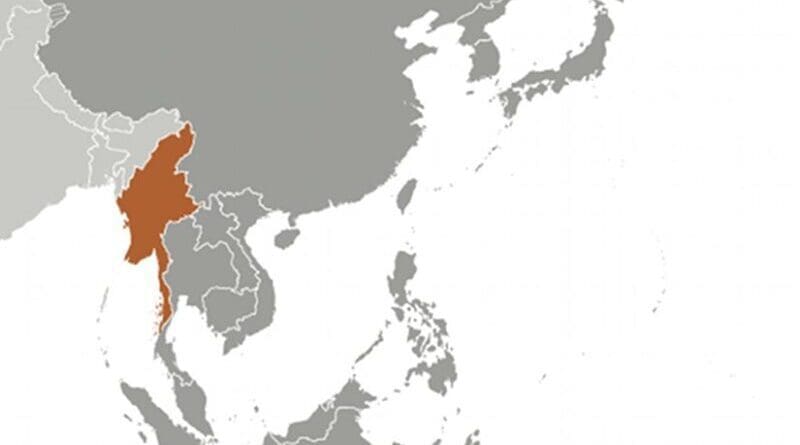Burma: Ponders Potential Radicalization Of Rohingyas
By UCA News
By John Zaw
In the courtyard of Myanmar’s Islamic University in Thetkaypyin village, half a dozen teachers sit around the courtyard while classes change.
It’s the worst of times for the Buddhist-majority country’s leading madrassa, now surrounded by refugee camps and villages that have been under prison-like conditions for three years.
At present 400 students are attending the university, the largest school in Rakhine State. Founded in 1951, some of the college’s graduates go on to serve as imams or go abroad for further studies, says Kyaw Zaw La, university professor.
Observers suggest that the abysmal living conditions in the refugee camps and the abject poverty of its residents are ripe for radicalization. Rohingyas, who lack basic rights in Myanmar, are denied citizenship, stripped of voting rights and denied access to adequate health care and education.
The Jan. 14 attacks on the Indonesian capital of Jakarta, have amplified fears of recruitment by radicalized elements.
Aung Win, a Rohingya community leader in the district raised concerns that Myanmar could be a target of the so-called Islamic State by recruiting young, unemployed Muslims.
“I can’t guarantee that all Rohingyas are moderate and some might be radicals and get contact with terrorist groups such as the IS. This is a serious concern and the plight of the Rohingya must be addressed by the government,” Aung Win told ucanews.com.
Yet Kyaw Zaw La, like his university colleagues, bearded and dressed in Myanmar’s traditional longyi, says Rakhine’s Muslims reject the violent acts of the Islamic State and al-Qaida terrorist groups and he had no concerns of recruitment among the state’s Rohingyas.
“We, Rohingya Muslims, have faced discrimination and have been targeted by the majority Rakhine Buddhists, but we have no interest in going against the government,” Kyaw Zaw told ucanews.com.
Hatred and bigotry toward the minority Rohingya have been deeply rooted in Rakhine state. Since 2012, hard-line Buddhist groups, like Ma Ba Tha, have led an anti-Muslim campaign that culminated in violent riots, harassment and discrimination.
Ma Ba Tha also has pushed for a restrictive religion law that targets minority Muslims, who comprise about 4 percent of the 51 Myanmar’s million population.
U Parmaukkha, a Yangon-based monk and member of Ma Ba Tha, defended the group, saying their actions were meant to protect Myanmar’s Buddhist culture.
He said the group feared a prevailing belief that Islam seeks to dominate the world. “So it is a threat to our country and we have many concerns in Rakhine state so we are closely observing (Muslims) with suspicion,” U Parmaukkha, told ucanews.com.
Al Haj Aye Lwin, chief convener of the Islamic Center of Myanmar, said he had no concerns with Muslims in Myanmar becoming radicalized, but noted that historically, the oppression of minority communities is a root cause of radicalization.
Extremist messages
Pe Than, a lower house lawmaker from the hard-line Buddhist Arakan National Party, said that he believed there were some extremist messages being preached at mosques.
“We can’t guarantee 100 percent that an IS attack can’t happen in Myanmar so we need to take precautions,” Pe Than told ucanews.com.
In a June 2015 report in the Economist, Abu Bakr al-baghdadi, the leader of the Islamic State in Iraq, referred to the “1 million of the weak Muslims who are all without exception being exterminated in Burma,” and asked what the Muslim world would do about it.
But Thomas Hegghammer, a Norwegian expert on Islam, said that Rakhine has not turned into another Chechnya or Kashmir — a big draw for angry, young jihadists — for three reasons.
“First, foreign fighters these days are drawn mainly to join the IS in Syria and Iraq, which offers them a more glamorous cause: fighting for a caliph rather than defending poor farmers and fishermen. Second, Myanmar secures its borders well, making it hard for foreign jihadists to reach the would-be battlefield. Third, militants don’t go to where Muslims suffer; they go to where Muslims fight,” Hegghammer told the Economist.
Khin Mg Myint, a displaced Rohingya in Sittwe, told ucanews.com that no one he knows is talking about joing a terrorist group despite so many being unemployed and impoverished.
“I have high expectations that new government of Myanmar will improve our situation in Rakhine,” he said.

